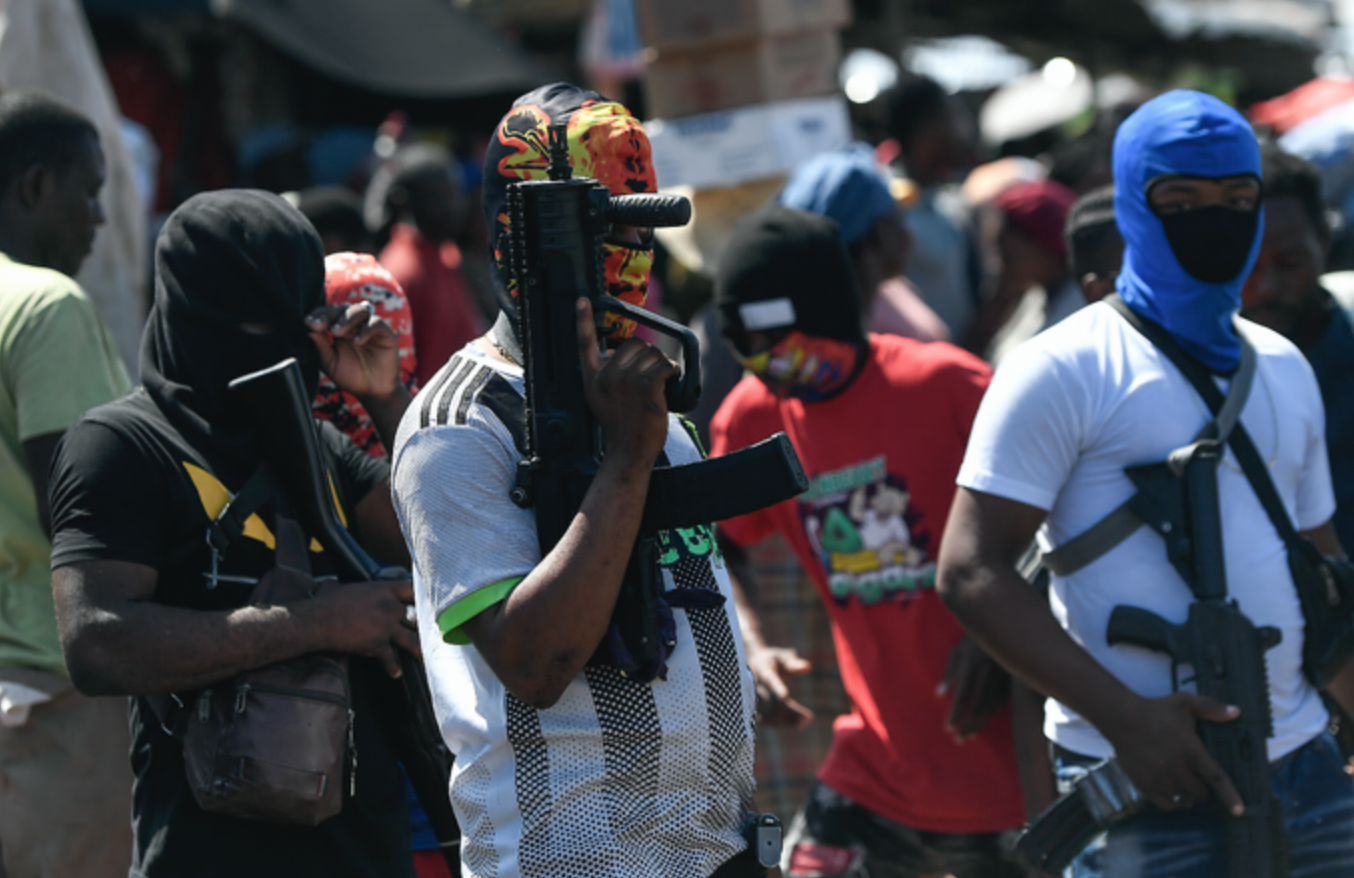Haiti continues to sink into the abyss of insecurity and ungovernability. The Office of the United Nations High Commissioner for Human Rights recently indicated that in the first three months of 2023, 530 people have been killed and 281 kidnapped as a result of gang-related violence. Haitian authorities have already shown signs of weakness before the military might of these criminal organizations. So, the interim government spokespersons have called on citizens to defend themselves, while inviting the newly reconstituted military forces to join the crusade to defeat them.
Criminal dismantling of democracy
The hollowing out of the state is a consequence of the political elites’ tolerance of the gangs’ territorial dominance after the 2004 humanitarian intervention and the 2010 earthquake. In subsequent electoral cycles, the gangs capitalized on their territorial dominance. Not only did they play a clientelistic role, but they also used violence to favor their political patrons in their respective districts.
However, during the government of Jovenel Möise, of the neo-duvalierist Parti Haïtien Tèt Kale, democracy would finally collapse with the invitation to the gangs to participate in the autocratization process. Covertly, the government strengthened them, but to the detriment of the fragile police force after the end of the mandate of the United Nations Stabilization Mission in Haiti (MINUSTAH).
The gangs thus became the Government’s shock forces that between 2018 and 2022 caused the death of 947 people, according to the National Network for the Defense of Human Rights (RNDDH), many of them in suburbs considered as Möise’s opposition strongholds.
The gangs (especially the G-9) were strengthened by the erosion of democracy in the Caribbean country. The government benefited from the environment of social control, and these organizations benefited from access to state resources. However, the surprise assassination of Möise opened a new situation. The weakness of the G-9 was exploited by other gangs competing for territorial control. This led to the proliferation of new gangs that have quickly led to democracy being hijacked by gang terror. The high number of kidnappings, the seizure of the Varreux terminal, and attacks on police stations have created an environment that makes it impossible to hold elections.
Authority and paper agreements
In this climate of uncertainty, in June 2021 Ariel Henry took over as interim prime minister. Since then, his role has been nominal in the face of constant armed attacks, and the successful competition from gangs currently dominates about 60% of the capital. In turn, the prime minister’s authority has been challenged because politically the opposition resurfaced under the Montana Accord, which demands his resignation and the holding of early elections. The opposition has even rallied around the rejection of the deployment of an international force requested by the Prime Minister last October.
However, the Montana Accord has been weakened by the defection of several of its members, due to the better political position of the Prime Minister and thanks to the Musseau Accord. This agreement between political forces has designated a High Transitional Council that will support the Haitian Prime Minister in the organization of the elections postponed since 2021.
Nonetheless, in the current situation, the initiative falls on deaf ears, as the country does not have the minimum security conditions to be able to hold fair and peaceful elections. Paradoxically, holding elections at this time could further fuel conflict in a country where its electoral institution is provisional and support for democracy is the lowest on the continent, according to the latest Latin America Public Opinion (Lapop) study.
The mutation of violence and arms trafficking
Violence in Haiti has a logic of its own. Many analysts have linked the security landscape to what is happening in various conflicts in Africa. In Haiti, however, the violence is not due to conflicts between ethnic groups competing for political power. On the contrary, it is about criminal groups instrumentalized by business and political groups to maintain fiefdoms in which to exercise their territorial dominance. The problem is that this character seems to be mutating facing the gangs’ greater autonomy to act without the consent of their former sponsors.
This dangerous criminal transition is being fueled by the increase in the arms trade from the United States and the Dominican Republic. According to the latest report by the United Nations Office on Drugs and Crime (Undoc), the critical situation in the country has made it an attractive market for the illicit arms trade. Additionally, the porous borders make it difficult for the authorities to stop the flow of weapons to the gangs, which further widens the quantitative and qualitative disadvantage against the firepower of these organizations.
A complicated mission
In October 2022, the Prime Minister requested the deployment of an international force to restore law and order in his country. The request remains unapproved due to divisions in the UN Security Council and the resistance of Caribbean countries to pressure from the United States for a country from the global South to take the lead in this international responsibility.
If finally approved, the mission to stabilize Haiti will be more difficult than those of the past. This mission will certainly not be aimed at overthrowing an authoritarian government, but neither will it be similar to MINUSTAH, which merely reduced homicides and kidnappings during its tenure. Now the task would be more complicated: to dismantle a criminal government system, which would imply breaking the alliance between politicians, businesspersons, and criminals that keep political power tied to the use of gangs as a mechanism of political power. Moreover, measures should be implemented to prevent this and new collusion phenomena from affecting the functioning of institutions.
Without a clean state, there is no functional democracy. This leaves us with an unpopular argument as an alternative: intervention is necessary if elections in a democratic future are not to end up endorsing the authoritarian and criminal practices that have hijacked the state and millions of Haitians.
*Translated from Spanish by Janaína Ruviaro da Silva












